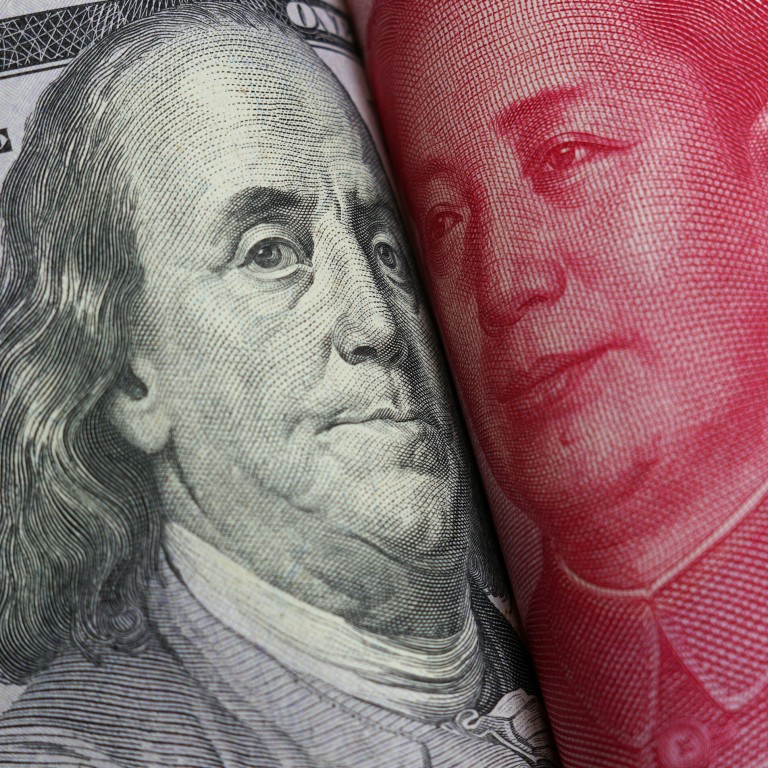
Foreign purchases of Chinese bonds double to US$19.4 billion in May as ‘hot money’ flows in
- Inflows likely a result of global monetary easing amid the coronavirus outbreak, analysts say
- Chinese banks also report 61 per cent rise in forex trading in month as firms, individuals convert dollars into yuan
According to figures released by the State Administration of Foreign Exchange on Friday, net purchases of bonds by foreign funds rose by 104 per cent from April to US$19.4 billion.
Meanwhile, Chinese banks reported a 61 per cent increase in foreign exchange trading to US$23.8 billion, the agency said, suggesting a growing willingness among Chinese individuals and companies to convert US dollars into yuan.
The figures confirmed the trend of strong capital inflows seen in data from other institutions. The latest figures from the Shanghai Clearing House, which records onshore bond positions, show that foreign ownership of China’s onshore bonds has risen to a record high.
The outstanding positions of onshore Chinese bonds owned by non-mainland investors amounted to 2.43 trillion yuan (US$343.4 billion) at the end of May, or 2.6 per cent of the total – its highest proportion ever.
In May alone, foreign investors increased their holdings of Chinese bonds by 114.6 billion yuan, marking the largest rise for 18 months, the clearing house said.
The strong inflows into Chinese onshore securities may be a result of global monetary easing, led by the US Federal Reserve, amid the coronavirus outbreak and a search for yields in a world of ultra-low or even negative interest rates, analysts said.
“Overseas investors are showing great interest in the Chinese bond market because its sovereign treasury bonds have relatively strong returns,” Robin Xing, Morgan Stanley’s chief China economist, said on Wednesday.
China could expect its annual portfolio inflows to reach US$100 billion, he said.
By the end of last month, 828 overseas institutions, including foreign central banks, had invested in China’s onshore bonds through Bond Connect – a scheme that allows investors from mainland China and overseas to trade in each other’s bond markets. Also in May, 12 new institutions began holding onshore Chinese bonds for the first time.
At a time when the US has been threatening to decouple from China, Beijing is likely to be delighted with the scale of the capital inflows.
Pan Gongsheng, a vice-governor at the PBOC and head of the foreign exchange regulator, told the Lujiazui Forum in Shanghai last week that foreign holdings of yuan assets had been growing at an annual rate of more than 20 per cent.

